Asparagus! The Food of Gods? Kings? Or Wizards? 👑 (Drew's Digest #10)
Where do they come from?
Asparagus derived its name from the Greek word, asparagos, meaning ‘sprout’ or ‘shoot’ and is believed to have originated somewhere in the eastern-Mediterranean and Asia-minor regions.
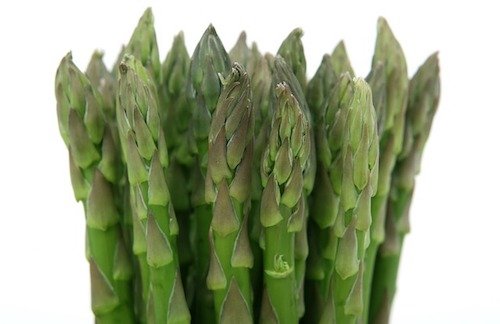
The history of asparagus can be traced as far back as 3000 BC to an Egyptian frieze (basically a decorative band above a doorway) that contained depictions of asparagus spears. Even the ancient Egyptian Queen Nefertiti called it a “food for gods”.
Wild asparagus was originally used for medicinal benefits before it was cultivated, more than 2000 years ago, by Greeks and Romans who ate it fresh when in season. Romans even took asparagus spears into the Alps to be frozen (so they wouldn’t spoil) for 6 months in preparation for the Feast of Epicurus, a celebration of the Greek philosopher.
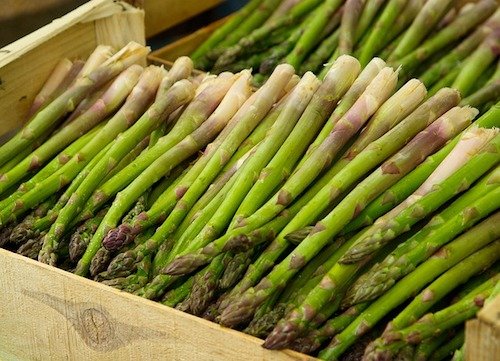
Hundreds of years later, asparagus continued to receive high praise and was considered a delicacy for the rich, and became known as the “food of the kings” (rather than gods). Emperor Caesar Augustus loved asparagus so much that he coined the term “velocius quam asparagi conquantur’ which translates to “quicker than you can cook asparagus” to describe doing something with haste. Other Roman emperors had specialised asparagus fleets to deliver the best spears back to the empire.

source
King Louis XIV from France, on the other hand, seemed to be a little less patient and went one step further by building greenhouses specifically for cultivating asparagus. Around this time, in the 17th century, popularity grew so much that the name asparagus was changed to ‘sparrow grass’ by folk etymology, only to be reverted back to the original name in the 19th century.
What are they exactly?
Asparagus is a perennial plant (i.e. they live for more than 2 years) that produce spears which are harvested before they reach about 20cm in height. If cared for correctly they can produce crops for 20 – 30 years!
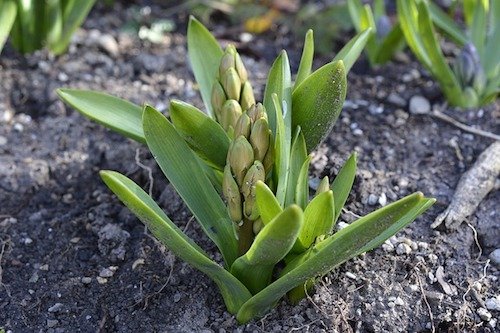
There are a whopping 300 species of asparagus found worldwide. Many are considered weeds and only around 20 are actually edible, notably the green, white and purple varieties.
Green asparagus is the most commonly found in supermarkets. White asparagus is a little harder to find but is the same variety as the green asparagus. The only difference being, that it is grown in the dark and therefore does not undergo photosynthesis (i.e. doesn’t gain energy from the sun).
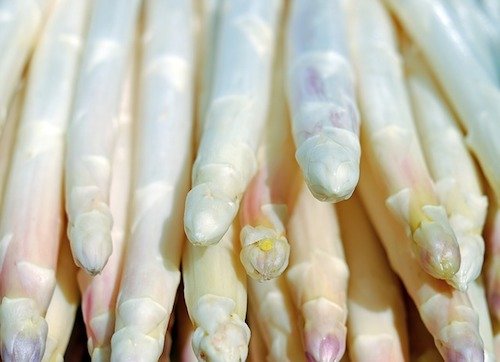
Purple asparagus has a higher sugar content and is more tender than the green variety, making them more edible when raw. They actually turn green after being cooked. The purple colour in asparagus, and other dark fruits and vegetables like blackcurrants and eggplants, comes from the high concentration of anthocyanin (a type of antioxidant).
When are they available?
Asparagus is a spring/summer vegetable that is available in Australia between September and March and is grown in the Koo Wee Rup region of Victoria. When not in season, asparagus is imported from the US, Mexico, Peru and Thailand. The majority of asparagus produced in the US comes from California and is harvested from January to mid-June, depending on the region and climate, with around 17% of total produce being exported.
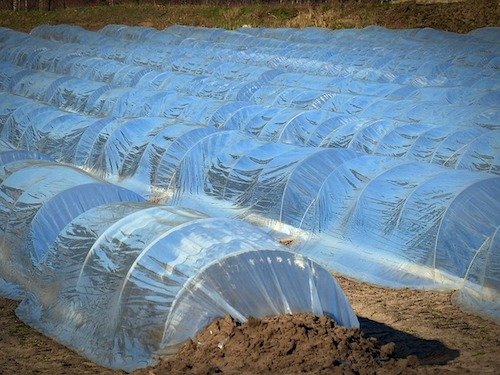
How do I store them?
When shopping for asparagus, look for bright, firm spears and store them in the refrigerator as soon as possible, as they will only last a couple of days. The best method of storage is to snap off the woody ends (around an inch) and place in a jar of water (much like a bouquet of flowers) and cover with a plastic bag, and they will now last around a week. Similarly, you can wrap the ends of the spears in a damp paper towel and store in a plastic bag or container.
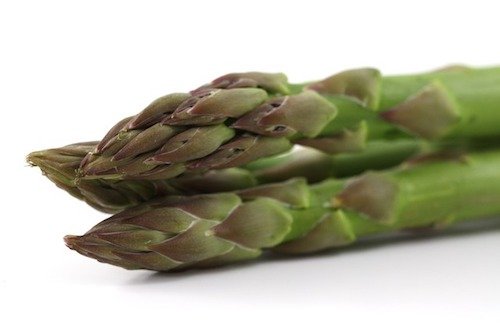
The reason for the quick spoilage of asparagus is because they are sensitive to ethylene. Put simply, ethylene is a plant hormone that is released as a gas to speed up fruit ripening and to make the plant die quicker (it is often used commercially to ripen tomatoes).
If asparagus is just tossed into the fridge, other fruits and vegetables that produce high amounts of ethylene (such as avocados, tomatoes and grapes) will make the spears break down faster. Keeping the base of the spears wet and covered with plastic will increase their longevity inside the fridge by reducing ethylene exposure.
How do I use them?
Asparagus is one of the easiest vegetables to prepare and cook super fast (a true fast food). The easiest method is to just wash it under some cold water (always, always, always wash your food!) then steam it, or boil it in lightly salted water for 2 – 3 minutes until it is easily pierced with a knife or fork.
Asparagus is also nice when it is slightly crispy. Simply throw them in the oven on top of roasting vegetables for the last 10 – 15 minutes of cooking time. On top of a quiche works wonders too!
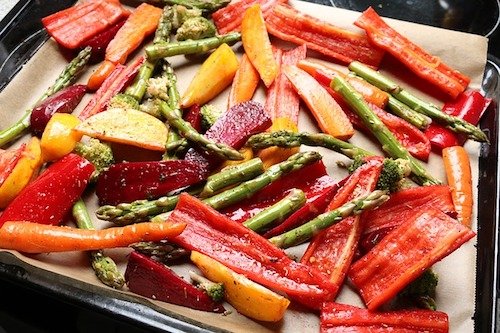
Did you know?
Some people choose not to eat asparagus because of the smell that it creates when going number 1’s. In fact, not everyone produces the odorous urine and not everyone can smell it. Studies have found that the percentage of people that produce odours after eating asparagus can vary from around 50 – 80%, depending on where you live, suggesting that our genetics may be involved. Likewise, the ability to smell odours seems to depend on genetic makeup. So if you produce the odour and can smell it, bummer.
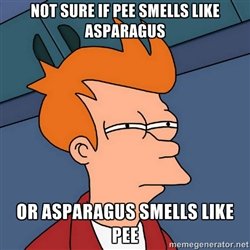
Why should I eat them?
Much pomegranate, asparagus is also very rich in antioxidants, helping to reduce the free radicals damaging our cells. They contain a high water content, meaning they are super low in calories and are a great source of Vitamin A, C and E. Just 4 spears contains around half of our daily intake for Vitamin K, and a quarter of our required folate.
Asparagus is also high in a mineral called chromium, which may help those suffering from diabetes or hyperglycaemia by;
Asparagus also produces plant steroids called saponins which have a bitter taste in high concentrations and may have anticarcinogenic effects and reduce cholesterol in the bloodstream
Another important chemical found in asparagus is glutathione which is made up of 3 amino acids (i.e. a tripeptide) and is found in every cell of the body that - studies have shown that it can act as a powerful antioxidant and assist in immune functioning.
If that's not enough to excite you, asparagus has actually been labelled as a natural aphrodisiac for hundreds of years - so there is that.
Images are my own, sourced from Pixabay or linked
Drew's Digest #09 - Everything You Ever Need To Know About Coriander 🌱
Drew’s Digest #08 - Three Meals or Six: Is Grazing the Cause of Obesity?
Drew’s Digest #07 - Everything You Ever Need To Know About Broccoli
Drew's Digest #06 - Five Hidden Sources of Vegan Protein 💪
Drew’s Digest #05 - Everything You Ever Need To Know About Lemons 🍋
Drew’s Digest #04 - Vitamin K: The Blood Clotting Compound 🥒
Drew’s Digest #03 - Everything You Ever Need To Know About Pomegranates 😍
Drew’s Digest #02 - How Genetics Will Define Our Future Diets 👨🏻🔬
Drew’s Digest #01 - Everything You Ever Need To Know About Avocados 🥑
CONNECT WITH ME ON

Love asparagus, the whole family do. We typically have it at the weekend with our grill. Toss in oliveoil garlic, salt and pepper, bang in the oven for about 12 mins... Delicious and simple! Even the kids chow down on it. Oh also a little Vegan parmesan on top... mmmm heaven!
Nice extra information about the varieties of asparagus; I am always wary of the more specialty items as they tend to carry a bigger price tag but aren't always much different from their more common cousins. Now I certainly won't pay extra for white asparagus AND a raw-application friendly purple variety is good to know about.
I have the lovely combination of producing and detecting the asparagus pee. To me, the smell is like a plastic but I almost always forget about this until I am in the bathroom. I've had someone speak up about it and a classmate felt very excluded for not being able to participate in the conversation haha sometimes ignorance IS bliss
Thanks heaps for reading - much appreciated as always. I have never seen the white or purple variety in a store before and don't think I would buy them unless I thought they would look cool in a particular dish. Asparagus pee is not something I'm accustomed to so I sympathise with your classmate.
Yum yum, asparagus is my favourite food.
@originalworks